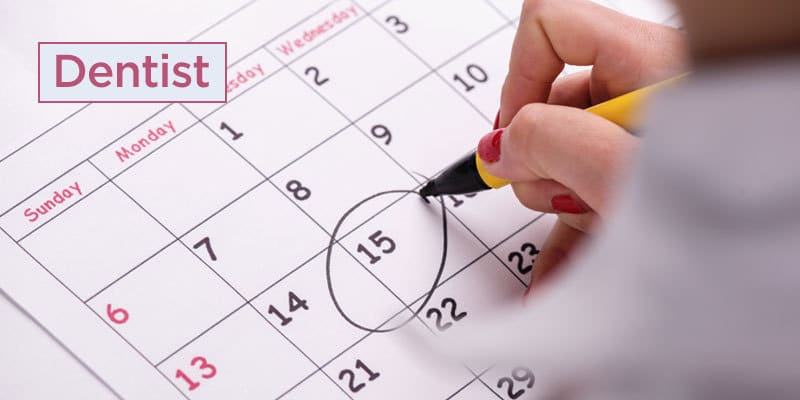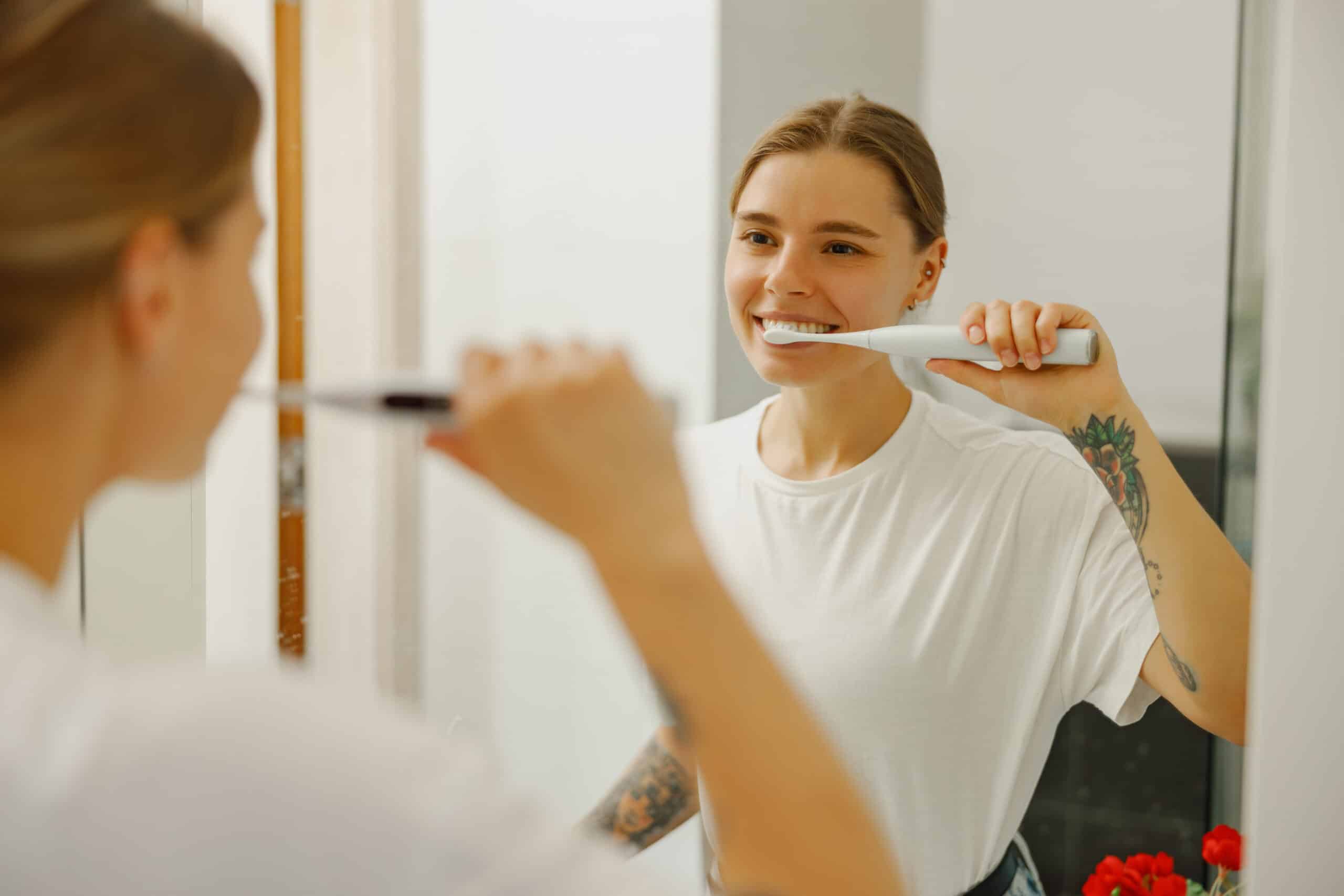- Regular check-ups include a thorough cleaning by a dental hygienist
- How often do I really need to go to the dentist?
- What happens during a deep dental cleaning?
- How often should a dentist x-ray my teeth?
You brush and floss your teeth at least twice every day, use a tongue scraper, and rinse with anti-bacterial mouthwash. These are great practices that promote healthy teeth and gums, protect the bone beneath your gum line, and keep your breath smelling fresh.
With all of that dental diligence, you might think you don’t need to see the dentist at all. Shouldn’t you wait until there’s a problem with your teeth, such as gum bleeding or a toothache, before you even think about making an appointment for a dental check-up?
The answer, which may come as a surprise to some, is no.
Just as your doctor wants you to come in for regular physical examinations, you should also see your dentist on a regular basis to ensure optimum oral health.
Only your dentist and dental hygienist can provide a full dental examination that includes deep cleaning, scaling, polishing, and other procedures that remove plaque buildup, reducing the risk factors for periodontal disease, tooth loss, and other oral health issues.
The question is: how often you should see the dentist? The answer lies in your own personal dental health history.
How often should you go to the dentist?
For both adult and child patients, dentists recommend having preventive dental visits every six months. This also makes family dental planning easier as the whole family can visit the dentist at the same time!
This is because plaque will still build up in your mouth, especially in hard-to-reach places, even if you’ve been diligent about caring for your teeth and gums. Plaque can harden into tartar, which can eventually lead to cavities and gum disease.
Six months between visits is a safe amount of time to detect possible dental health issues before they can turn into something more serious. However, if your oral health causes you or your dentist concern, you might need additional visits in between your routine six-month check-ups.
For example, if plaque tends to build up quickly in your mouth, you may need scaling every three months, but only need a checkup every six months.
What happens during a deep dental cleaning?
Deep cleanings are the best way to remove plaque, tartar, and other contaminants from your mouth to prevent dental caries (also known as cavities or tooth decay), gum disease, and other oral health issues.
You can’t do this on your own. Only your dentist and dental hygienist have the necessary tools, training, and expertise to give your teeth the deep cleaning they need to stay healthy.
Because patients are usually lying back – and wearing sunglasses to protect their eyes from the bright lights needed to perform the cleaning – they don’t often see which tools our dentist or dental hygienist use during the examination. Here is a partial list of these specialized devices:
- Mirrors: These small mirrors reflect light to enable your dentist to see the rear surfaces of your teeth, the back of your mouth, and tartar deposits more easily
- Scalers: Scalers are metal tools with two ends: some are used to scrape plaque and tartar from your teeth above the gum line, and others work below the gum line without hurting your gum tissue
- Polishers: After removing the plaque and tartar from your teeth, your dentist or hygienist will use a polishing tool, along with a moderately abrasive paste, to make your teeth look as white and shiny as possible
Along with a deep cleaning, your dentist and dental hygienist will complete a full oral exam to detect any ongoing or potential dental health problems, which are impossible for patients to diagnose themselves.
These issues include cavities, gingivitis, tumours, cysts, and bone decay under the gums. In many cases, the dentist will need to take x-rays to get a complete picture of your dental condition.
How often should a dentist x-ray my teeth?
Similar to regular check-ups, the frequency of your dental x-rays depends on your full dental health history.
If you haven’t had any cavities or other oral health issues, you likely won’t have to have x-rays at every visit. However, patients with less stable dental health will require more frequent x-rays so their dentist can monitor how the situation is developing.
X-rays help your dentist assess the condition of hard-to-see areas in your mouth, such as between your teeth, in the root canal, and below your gums, where bone loss, decay, abscesses, and tumours can develop unseen to the naked eye.
Without x-rays, these conditions can go undiagnosed and untreated, leading to bigger problems over time.
Dentists also use information gleaned from dental x-rays to improve the fit of tooth implants, dentures, and braces.
Are dental x-rays dangerous?
Dental x-rays have very low doses of radiation, especially when compared to other imaging procedures. In fact, a routine dental x-ray using four bitewings exposes you to roughly the same amount of radiation as a 1 – 2 hour flight.
Although dental x-rays are extremely safe, your dentist will only recommend them when they feel they’re strictly necessary. They will also avoid using them on pregnant woman.
Dental x-rays are just one of the many ways that your dentist and dental hygienist help you maintain optimal oral health. At your next appointment, your dentist will be happy to answer any questions you might have about how often you need to come in for a dental examination.
It’s the best thing you can do maintain the confidence that comes from a beautiful, healthy smile!
Preventative Dental Care at Yonge and Eglinton in Toronto
If you haven’t had a dental check-up in more than 12 months, it’s time to arrange for preventive dental visits with your dentist. With their help, you can take a proactive approach to maintaining your dental health, and avoid the discomfort of cavities, gum disease, and even tooth loss.
If you have any specific concerns about your teeth, or would like to get back to a healthy dental maintenance routine, give Yonge Eglinton Dental a call today at 416-932-2222 or visit us online to book an appointment. We’d love to see you!








